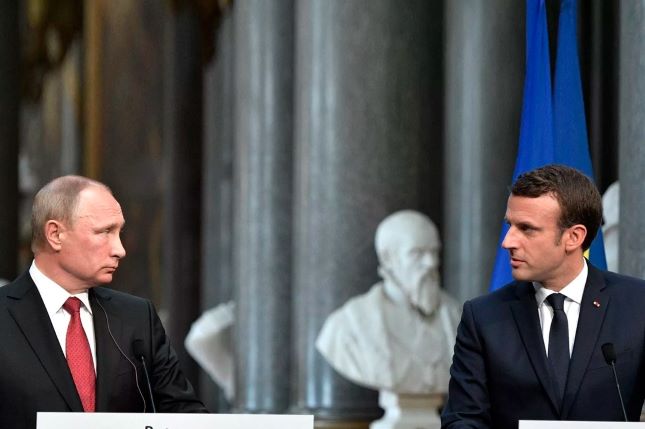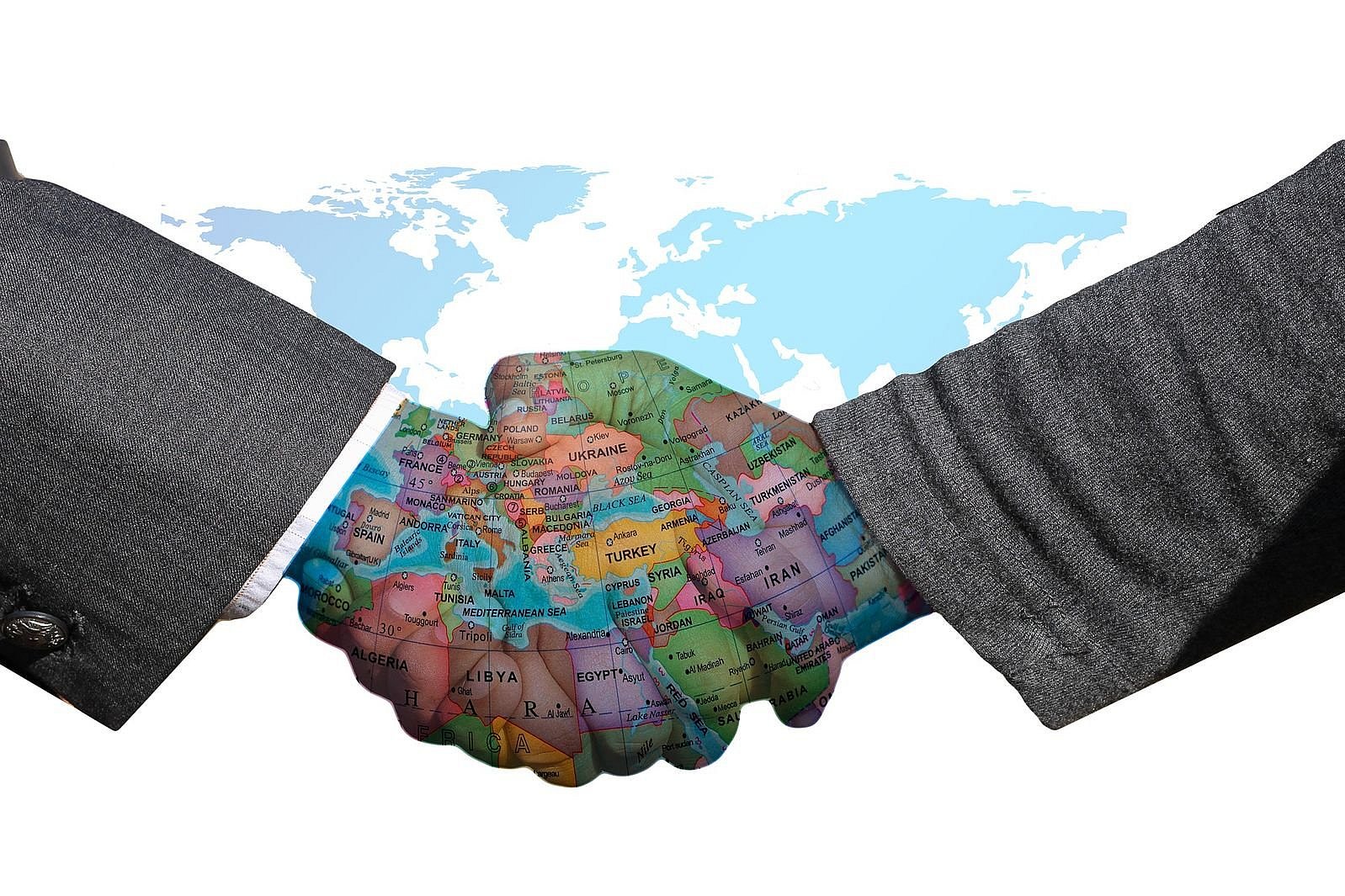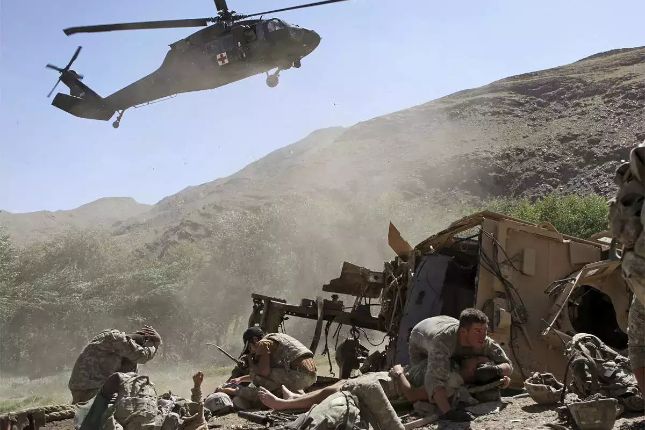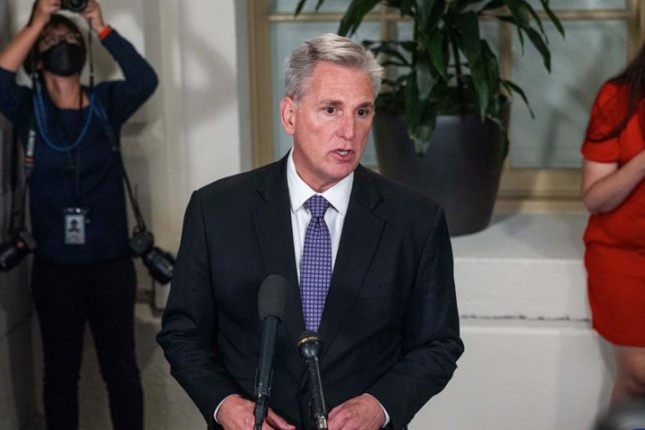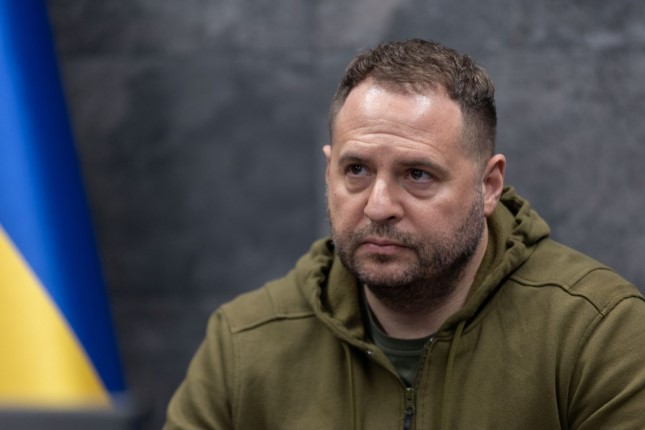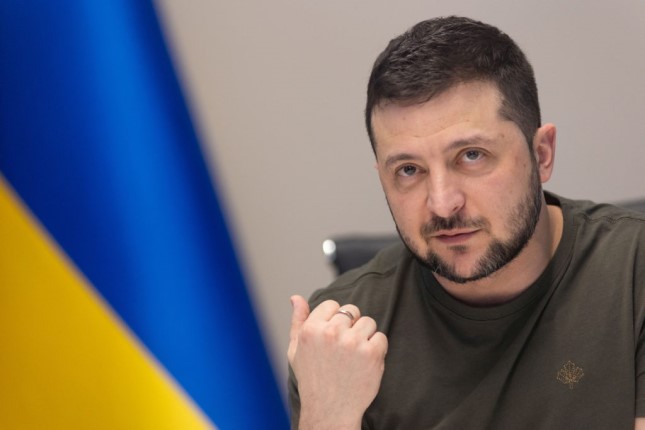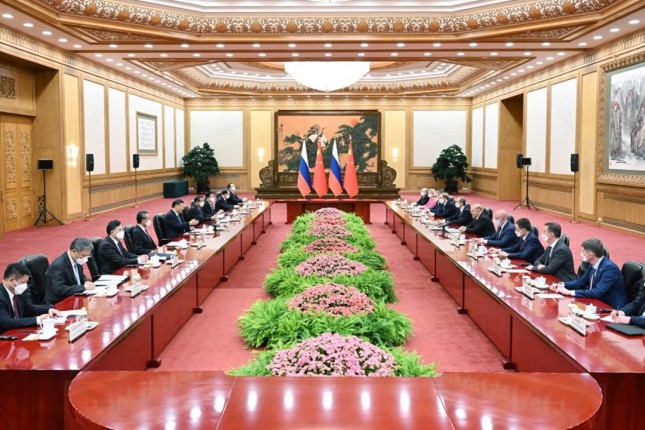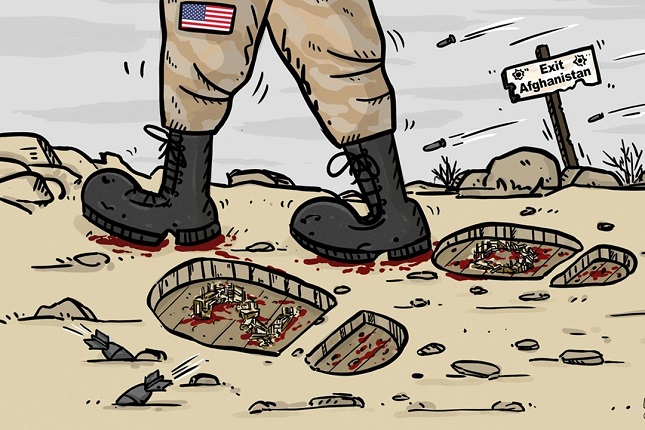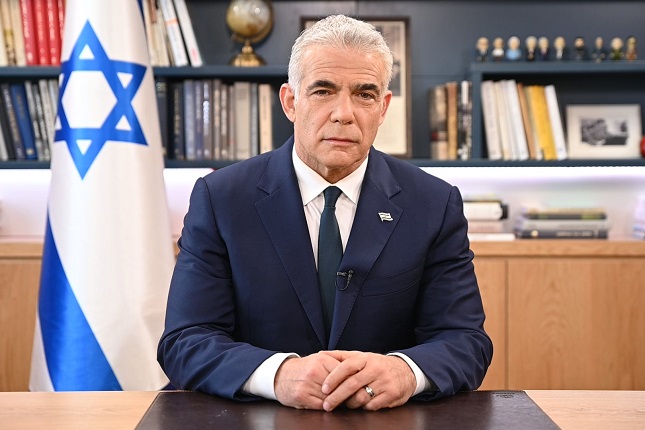Quite a few of us must have wondered, purely out of common curiosity, what happens at those private one-on-one meetings between world leaders? What language do they speak? Do they ever switch from the formal and roundabout diplomatic language to a more distinct and precise quid-pro-quo one? Do they use humour and emotions to add flavour to their conversation? Do they ever talk about something private? Just recently, those of us who cared enough to know were finally offered a chance “to peek behind the curtain” when France 2, one of France’s TV channels, decided to air a recording of the supposedly secret talks that took place between the president of Russia and France in February, literally on the eve of the start of Russia’s offensive in Ukraine.
We want to offer a recap for those who may have missed the broadcast. Here's what we were shown in a nutshell. Macron and his advisors are sitting at a table; the phone on the table is on speakerphone. As the conversation unfolds, the aides react emphatically to some of Macron's comments by making faces and giving thumbs up. One of them can be heard calling Vladimir Putin a "liar" in response to one of his comments. Macron is playing along with that.
One cannot help but get mixed feelings out of watching this footage. On the one hand, and that’s the positive bit, what President Putin is saying is consistent and perfectly in line with what he had been saying in public all along. On the other hand, everything the French president is saying and the visual sequence on France's side that goes along with it look staged, farcical and contrived. Even to an uninitiated viewer, it is clear what Macron is after. It is to wrestle from Putin a promise that he would not mind having a meeting with the US President to discuss Ukraine. And to portray himself as a global peacemaker as a result.
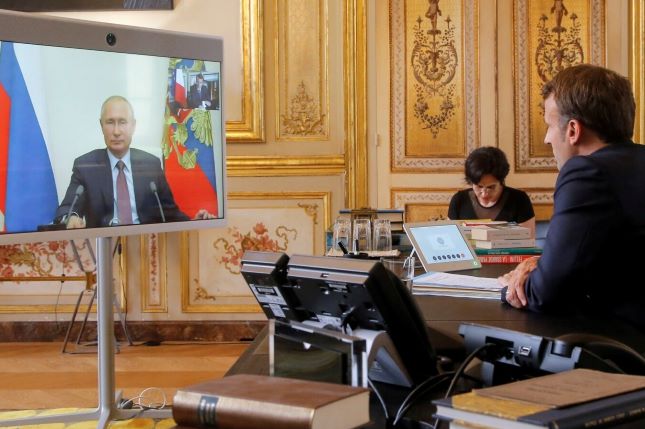
Photo: AFP
Incidentally, the French had embarrassed themselves once before, in September 2020, by making public via Le Temps, a Swiss French-language daily, the contents of what was supposed to be a private conversation between Macron and Putin discussing the plight of Alexei Navalny, the opposition activist who was alleged to have been poisoned with the Novichok nerve agent. But back then, it at least had the appearance of a "leak", and so, some minimal decorum still seemed to be observed. But this time, this is a case of a video that clearly could not have made it to the public domain without the personal blessing of the French president. What exactly should we be making of all of this? Was this some outlier incident of deviant behaviour exhibited exclusively by France's diplomacy (and its political system), or could it be a new trend indicating that private talks are no longer allowed?
At this point, it would be necessary to refer briefly to the history of diplomacy. Traditionally, diplomacy had been perceived as the art of deceiving or intimidating one's opponent to gain the greatest possible advantage. This view persisted until the early eighteenth century when Francois de Callieres, a French diplomat, published a book that argued that negotiations need to be conducted “honestly” and “based on a high level of intelligence" since “even the most brilliant examples of diplomatic success achieved by deception tend to rest on an unsteady ground”.
However, these noble aspirations of the New Age have had little if any effect on the essence of diplomacy. Today, diplomacy is regarded as the art of gaining a particular advantage for one's own country and/or its elites. Such advantages by no means have to be reciprocal. But its form has changed, indeed. As a rule, what is purported to be the goal of diplomatic efforts is a shared interest (as in international stability, finding a solution to global challenges, promoting democracy, etc.). One of the cornerstones of the present-day diplomatic code remains respect for the secrecy of negotiations, especially at the top level.
So, what could explain Macron's recent "diplomatic exposure"? This may be because the last two decades or so have witnessed an apparent decline of diplomacy as a trade (in the sense of laying the groundwork for leading countries to interact internationally to address serious challenges rather than just maintaining regular routine contacts between nations). This decline was precipitated by the emergence, in the early 1990s, of a single dominant global player who did not need any diplomatic tools to advocate its positions.
Rather than interacting with other countries in the manner dictated by the rules of conventional diplomacy, the US State Department had grown used to instructing them on what position or steps they needed to take on a particular issue at hand. This is why the US elites, spoiled by this experience, quite sincerely fail to understand why for God knows why they are expected to negotiate with Moscow over Ukraine. Accordingly, the countries that make up this present-day "vassalage" network (basically, the entire world except for a few "outcasts") grew used to seeing these wishes as the only thing that made sense. Little by little, in the absence of viable alternatives, their interests began to converge with those of the United States.
Judging by the way his conversation with President Putin went, this is the reason why Macron finds it extremely difficult to understand what his Russian counterpart is saying. Macron is incapable of seeing the problem through the other man's eyes. It would be safe to say that the French president appears to have been 'programmed' to act this way due to his subservient position and can only function properly within the framework laid out through the narrow context of the narrative promulgated by the US.
In a situation where diplomacy is in a state of decline, it gets relegated to carrying out merely auxiliary functions. The case with Macron is a clear example of how one’s diplomatic contacts with the leader of another nation are used exclusively for pursuing a purely domestic agenda. Over recent months, no matter where he would go, the French president has always been accompanied by a journalist who is said to be making a ”film” about him. One could discern the key message of this future film just by looking at Macron’s eagle-faced expression during his conversation with Putin was portrayed. Here’s the leader of the nation who is capable of holding his ground no matter what! Diplomacy has just been turned into an exercise in public relations to benefit rank-and-file French viewers. Incidentally, judging by comments left on social media, this is precisely how most of our country's experts and ordinary people viewed Macron's peacekeeping efforts earlier this year, never taking them seriously.
As we have shown before, US diplomacy has lately been more about chanting some soothing mantras for the initiated so that they would see what is to be done and that everyone has to toe the line.
What we have also seen transpire recently is another interesting example of a departure from the time-honoured principles of traditional diplomacy, known as deep-fake diplomacy, which has been in current use primarily by Russia (although it is hardly prudent to expect that there would ever be an acknowledgement that Lexus and Vovan, Russia’s notorious prankster duo, are in any way affiliated with the Russian government). Its goal is different. In addition, obtaining sensitive information is used as a tool to discredit one’s opponent. Again, despite a veneer of some diplomatic attributes, this has nothing to do with conventional diplomacy.
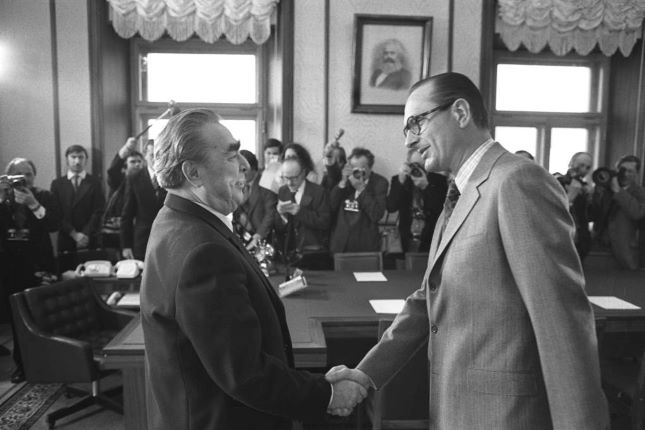
Leonid Brezhnev and French Prime Minister Jacques Chirac, 1975.
So, when can we expect a return of diplomatic relations between the world's leading powers to something we had been accustomed to, the practice of maintaining an earnest dialogue and searching for compromise? Not until a new global balance of power has been struck and until there is an understanding that there is no point in trying to impose one’s will on the others and that it is necessary to negotiate in earnest. Unfortunately, as history has taught us, the only way to achieve this balance seems to be by going through war and sacrifices, something that we see happening before our eyes. The only question is how long and devastating this period of diplomatic "deafness" we are going through right now will be.
*The main image - Joint press conference of Russian President Vladimir Putin and Emmanuel Macron, Versailles, 2017
